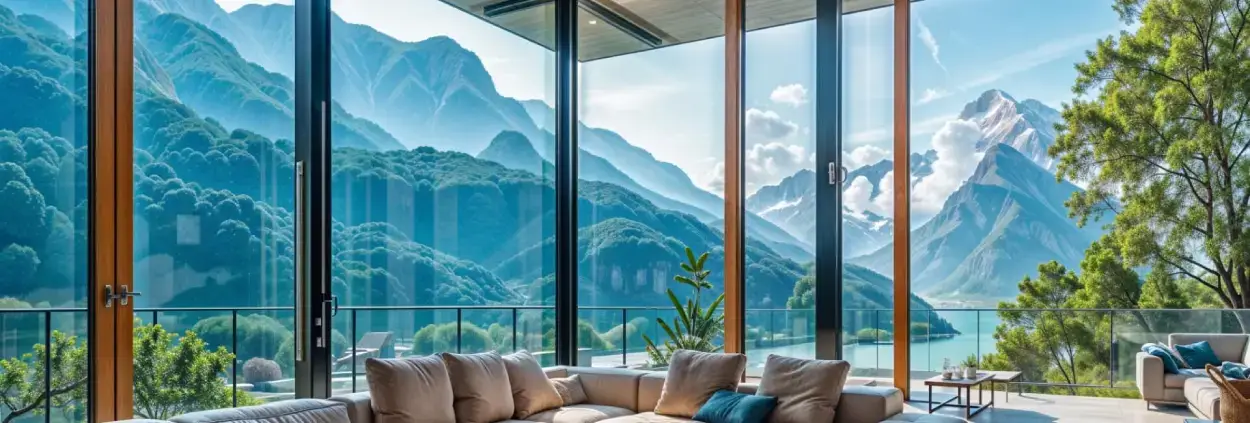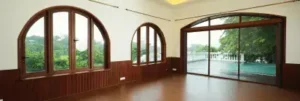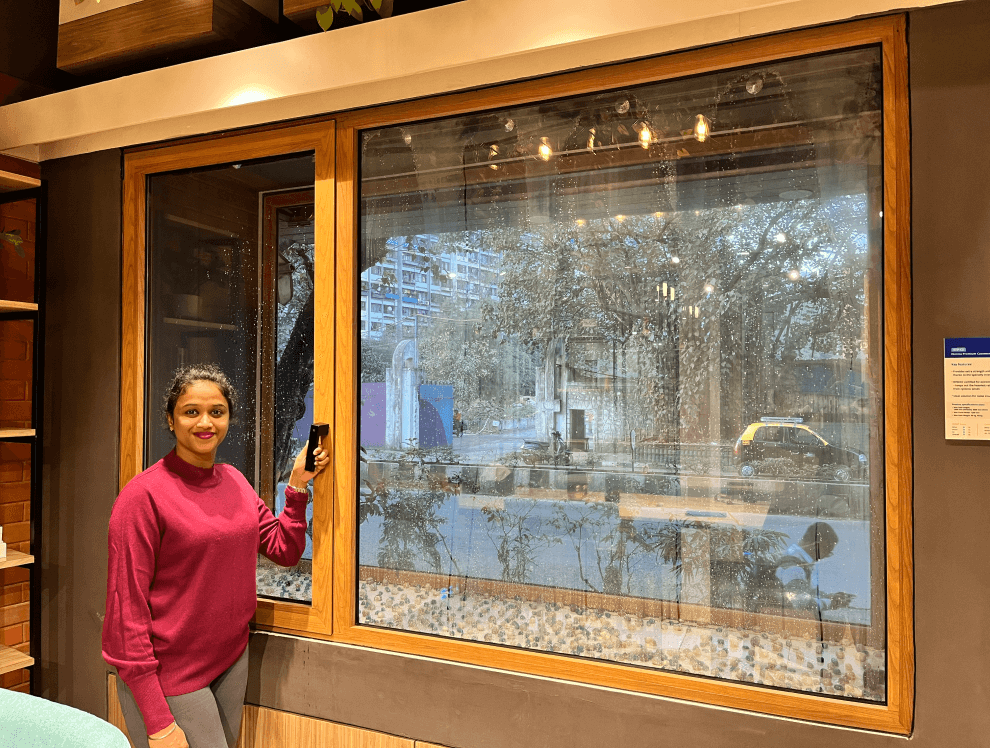
How to Rainproof Your Windows: Prepare Your Home for the Monsoon Season
The monsoon season in India brings much-needed relief from the summer heat but also exposes homes to moisture-related issues like dampness, leaks, and mould. One of the key areas where water tends to seep through is your windows. That’s why rainproofing your windows is essential, not just for comfort but also to protect the structural integrity of your interiors.
Whether you live in a coastal city like Mumbai or a high-rainfall area like Cherrapunji, effective window solutions can help keep your home dry and damage-free. In this guide, we’ll walk you through how to prepare your windows for the rains, and how modern options like designer windows for homes, French window design, and aluminium glass sliding windows can offer both style and storm resistance.
How to Rainproof Your Windows?
When looking to rainproof your home, here is a list of some of the most essential things to consider and look for in your windows:
Inspect and Seal Gaps Before the First Rain
The first step in rainproofing your windows is to inspect the window frame and wall for any visible gaps, which can be identified through a detailed examination. These gaps, even if they appear tiny, can allow rainwater to seep in, leading to long-term structural damage.
Use a high-quality weatherproof silicone sealant to fill in any cracks around the window frame. Silicone works well because it’s flexible and doesn’t crack easily with temperature changes. For older window frames, consider hiring a professional to apply caulking to ensure a watertight finish.
Upgrade to Rain-Resistant Window Designs
Traditional window types might not always withstand the monsoon’s relentless downpours. This is where designer windows for homes play a crucial role. These aren’t just about aesthetics; the latest window designs are developed with water drainage channels, wind pressure resistance, and strong sealing systems.
For instance, French window designs can be upgraded with weatherproof hinges and modern double-seal mechanisms. Their vertical opening style also allows rain to roll off rather than collect on horizontal surfaces, reducing the chances of leakage.
If you live in a region prone to storms or high winds, opt for reinforced frames made of aluminium, paired with laminated or tempered glass for added safety.
Choose Aluminium Glass Sliding Windows for Efficiency
One of the best modern solutions for monsoon-proofing your home is installing aluminium glass sliding windows. These are becoming increasingly popular in Indian homes due to their sleek design, easy operation, and excellent weather resistance.
Aluminium frames do not warp or swell with moisture, unlike wooden frames. When combined with water-tight sliding tracks and double-glazed glass, they create a powerful barrier against rain, wind, and dust. Ensure your sliding window system includes a rain gutter or drain hole mechanism to prevent water pooling.
Additionally, choose models with rubber gaskets and high-pressure sealing strips to keep out water and air effectively. Many window brands now offer monsoon-specific designs tailored to Indian climates.
Install Window Awnings or Overhangs
A practical addition that can drastically improve rain protection is an awning or overhang above your windows. These structures deflect rain away from the window surface, reducing direct impact and lowering the chance of water seepage.
Awnings work particularly well with French windows and large glass windows commonly seen in modern homes. You can choose between permanent metal-framed structures or retractable canvas awnings, depending on your architectural preferences.
Maintain Proper Drainage Around the Window Area
Sometimes, even the best windows fail if the surrounding drainage is inadequate. Check that your window sills slope outward, not inward. This will ensure that rainwater flows away from your walls, rather than pooling towards them.
Clean your window tracks regularly, especially in aluminium glass sliding windows, where dirt buildup can block drainage holes and cause leakage inside the house. It’s also wise to check adjacent wall cladding, plastering, and paintwork for damage that could worsen during rain.
Use Rainproof Curtains or Interior Protection
Although exterior sealing is most important, adding an interior layer of protection can help as a backup. Install rainproof curtains or vinyl window films to prevent accidental drips from damaging your interiors. This is particularly useful for designer windows for homes, where aesthetics and durability need to go hand in hand.
You can also use window sill trays or moisture-absorbent mats to catch any small leaks during heavy downpours.
Consider Professional Help for Older Homes
If your home is more than 10 years old and still uses single-pane glass or traditional wood frames, it may be worth consulting a window specialist. Retrofitting or replacing outdated fixtures with modern aluminium sliding windows or contemporary French window designs could dramatically improve both your home’s appearance and its monsoon resistance.
Professional assessments often reveal hidden damage, like rotting frames or poor sealing, that you might miss on your own.
Final Thoughts
Preparing your home for the monsoon isn’t just about umbrellas and raincoats; it’s about rainproofing the very structure of your home, starting with your windows. Modern innovations from leading and reputable aluminium window manufacturers, such as Eternia by Hindalco, offer designer windows for homes, including French window designs and aluminium glass sliding windows, enabling you to enjoy the rain without worrying about seepage, damage, or discomfort. Eternia windows and doors are WiWA-tested and certified to prevent water ingress, even in extreme conditions up to 750 Pa, safeguarding your home, furniture, and walls from damage.
Invest in the right window solutions now, and you’ll thank yourself every monsoon for years to come.
Frequently Asked Questions
Aluminium sliding windows are ideal for rainy weather because aluminium frames don’t swell or warp with moisture. When paired with water-tight tracks, double-glazed panels, and rubber gaskets, they provide excellent resistance against rain, wind, and dust. Their efficient drainage systems help prevent water from seeping indoors.
Yes, today’s designer windows for homes blend aesthetics with performance. Many are engineered with built-in rainwater drainage channels, pressure-resistant seals, and laminated glass. These features ensure that your stylish windows also serve as a strong defence against monsoon-related issues, such as leaks and dampness.
During the monsoon season, clean the tracks of aluminium glass sliding windows at least once every two weeks. Dirt buildup can clog drainage holes and cause leaks. Regular maintenance ensures a smooth sliding motion and adequate water drainage.


 +91 97699 40000
+91 97699 40000











